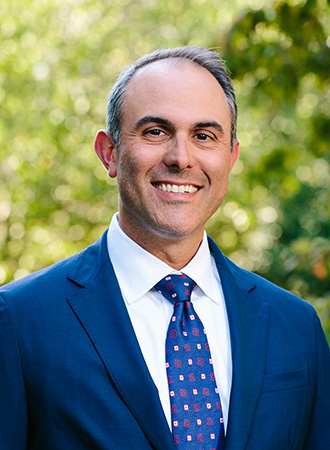Jason B. Sheffield – Criminal Defense Notable Cases:
Sex Crimes

Summaries of charges, defenses, and outcomes for clients prosecuted in counties throughout Georgia and the Southeast.
Charges Dismissed Before Warrant Issued
Sexual Battery investigation dropped where Defense Attorneys prove touching was accidental incident of “sleep sex.” (2019)
Defense Counsel:
Charges: Sexual Battery
Prosecution's Case:
Defendant was under investigation for Sexual Battery for touching his adult cousin’s breasts while the two were sleeping in the same bed together at his one-bedroom apartment. The victim said she was traumatized, sought counseling, and called police.
Defense and Outcome:
Defense Counsel immediately intervened with police, asking for time to investigate the case and opportunity to be heard before they decided whether to make an arrest. The police agreed, and Counsel got to work.
Counsel learned that Defendant did, in fact, touch the victim’s breasts. However, he did so by accident while he was asleep. When he awoke and found himself touching her, he stopped immediately, apologized profusely, and said that what just happened was “disgusting.” The two parted without further incident. Over time, the victim became increasingly upset. She told Defendant she was seeing a “doctor” about it and needed some money. Defendant helped her for a while, but eventually refused. Soon thereafter, the victim went to police.
Counsel gathered information about Defendant, his family, and the victim’s background, and came to believe that the victim was romantically interested in Defendant and that her feelings were hurt when Defendant said his touching was an accident and was “disgusting.” Counsel also believed that the victim, who was financially unstable, used the incident to extort money from Defendant, and then got mad when he cut her off. By reviewing old court records and talking to family members, Counsel discovered that the victim and her mom might have been involved in prior false allegations of sexual abuse against the victim’s father.
Counsel had Defendant take a polygraph exam about his intent to touch the victim – he passed. Counsel also interviewed Defendant’s prior and current bed partners (his ex-wife, ex-girlfriend, and current girlfriend), each of whom described how Defendant often unknowingly, unintentionally touched them while he was asleep. Counsel had prior case experience with, and had accumulated a significant body of research about, involuntary sexual acts during sleep (a.k.a. “sleep sex,” or “Sexsomnia”). Counsel believed that’s what happened here.
Counsel presented all the foregoing to the police and the prosecutor, who ultimately declined to arrest or prosecute Defendant.
State v. John Doe (2015)
Defense Counsel:
Charges: Rape
Prosecution's Case:
Defendant was under investigation for raping a 31-year-old woman. The woman told police that she and Defendant were “just friends,” but that he wanted to be “more than friends.” The woman alleged that, after Defendant lured her to his apartment, Defendant pushed and held her down while he raped her vaginally and anally. The woman reported that she was bleeding between her legs during the incident; and police observed and photographed bruises on her arms, thighs, hips, buttocks, and back.
Defense and Outcome:
Defendant had consensual sex with the woman on the night in question. Defense counsel had him take a polygraph exam, which showed he was being truthful, and a psychosexual evaluation, which showed he had no psychological issues associated with committing rape. Through Defendant’s testimony and personal records, defense counsel showed that Defendant and the woman were more than friends, having an ongoing relationship involving dates, overnight trips, and consensual sex. Extensive interviews of witnesses who knew the woman revealed that her conduct and behavior after the alleged incident was inconsistent with being a victim. Witnesses also reported that the woman had a history of peculiar behavior and that they were not surprised she could invent a story of sexual abuse: she often had bruises; she claimed to be “saving herself for marriage,” but acted out sexually in strange ways; she was conflicted about her religious beliefs and her sexuality; she still lived at home with her “very religious” mother, who would have disapproved of pre-marital sex; she often told tall tales, liked being at the center of drama, often played the victim; and she may have made prior false allegations of rape and child molestation. Finally, by visiting Defendant’s apartment, defense counsel observed that a brutal rape could not have occurred there without being heard by the neighbors, and that there were no blood stains or other signs of trauma consistent with the allegations. Defense counsel presented this evidence to police, who subsequently agreed to close its investigation without obtaining an arrest warrant.
State v. John Doe (2015)
Defense Counsel:
Charges: Rape
Prosecution's Case:
The defendant employed the victim. Together, they came to Atlanta to attend a conference. One night after drinks, the defendant raped her in her hotel room. She went to the emergency room the next morning and was distraught. The doctors obtained DNA. The DNA belonged to the defendant or another male in his family.
Defense and Outcome:
The alleged victim had been drinking heavily and making passes at the defendant, her employer. The defendant and his brother, also the alleged victim's employer, cared for her and took her to her room where she got sick. The defendant stayed with her and ensured that she did not experience more problems. Several hours later, the defendant left the alleged victim's room and went to his own room. Immediately after he left her room, the alleged victim called another male friend of hers and spoke for about 30 minutes. After that conversation, she called 911.
The defendant contacted Mr. Sheffield, who then contacted law enforcement who agreed not to rush to judgment against the defendant.
After several months of investigation, Mr. Sheffield was able to show the alleged victim's statements were inconsistent about how the alleged assault occurred. She told one officer she was assaulted from behind. She told a friend that the defendant was on top of her in her face. There were no vaginal injuries or bruises anywhere. While there was "DNA", it was not conclusive. The alleged victim was seen with her other male friend 24 hours later, staying at his apartment over night. That friend told other witnesses that they were being intimate.
After countless interviews of witnesses and an investigation into the alleged victim, Mr. Sheffield convinced the authorities that the alleged victim was trying to set the defendant up for an employee harassment lawsuit and that she was not worthy of belief. The district attorney's office presented the findings to a Grand Jury and the Grand Jury elected to "No Bill" the charges. The case would not go forward.
State v. John Doe (2014)
Defense Counsel:
Charges: Rape, Aggravated Assault with the Intent to Rape, Sexual Battery, False Imprisonment
Prosecution's Case:
The defendant, a university student, sexually assaulted five women: two girls were violently raped and three girls were groped on their breasts and vaginas. Defendant was facing a mandatory term of 25 years in prison, up to Life, and a lifetime on the Sex Offender Registry if he ever got out of prison.
Defense and Outcome:
The defendant adamantly denied to defense counsel that he forced himself on anyone. The investigation into each girl revealed that several girls had mental issues and were seeking attention. No girl ever reported the defendant for violent or assaultive behavior until they were publicly asked by police. One alleged rape victim used the false allegation to heel her fractured relationship with her boyfriend because she had cheated on him with the defendant. The other alleged rape victim who stated the defendant raped her 11 times was a lesbian who was “trying” intercourse with the defendant. She was angry about their break up and jealous. Psychological testing revealed the defendant was not a dangerous sexual predator or into sexual violence. After 4 months of intensive investigation and testing, defense counsel met with the chief of police. He chose not to arrest the defendant and closed his investigation. The University suspended but did not expel the defendant.
Charges Dismissed After Warrant Issued
State v. John Doe (2010)
Defense Counsel:
Charges: Attempted Sodomy
Prosecution's Case:
Defendant solicited having oral sex with another male via Craigslist and then met an undercover officer posing as an interested person in a park nearby his home where he (the defendant) attempted to give the undercover officer oral sex.
Defense and Outcome:
The defense immediately investigated all facts and presented evidence that the undercover officer had pressured the defendant to perform the act in a public park and not in the defendant’s apartment. The defense also showed that the defendant’s character was stellar, having extensive support from the local community. The defense also consulted with experts who agreed that the defendant was not a sexual deviant or threat to the community. The District Attorney’s office agreed to close the investigation without formally charging the defendant and agreed to expunge his record.
Charges Dismissed After Indictment Issued
State v. John Doe (2016)
Defense Counsel:
Charges: Rape
Prosecution's Case:
The defendant raped the alleged victim after a night of drinking. His DNA found on her underwear and in her vagina was conclusive proof of the sexual assault.
Defense and Outcome:
The alleged victim had consensual sexual contact with the defendant but not intercourse. The DNA evidence was only conclusive to sexual "touching" but not penetration, as no sperm or semen was identified. Also, the alleged victim's story was inconsistent about the events of the alleged rape and she did not immediately report it to police. Instead, she called her boyfriend who was angry at her for being sexual with the defendant while he was away. The state dismissed the charges prior to trial.
State v. John Doe (2014)
Defense Counsel:
Charges: Sexual Battery, False Imprisonment
Prosecution's Case:
The defendant assaulted one of his employees multiple times over an extended period of time. He made sexual comments to her, groped her butt, and forcefully fondled her breasts.
Defense and Outcome:
The defendant adamantly denied any wrongdoing. He believed the employee was setting up a civil lawsuit against him. In fact, she had hired a civil attorney. Mr. Sheffield investigated the employee extensively and learned that she had filed suit previously against an apartment complex several years earlier, regarding burn injuries her daughter sustained, but lied in the course of the medical treatment of her daughter. Mr. Sheffield obtained the former suit and medical records and interviewed the medical providers. Documents revealed that she first told nurses she didn't see what happened, but later changed her statement, stating she witnessed her daughter touch an exposed outlet. The woman was also living in the United State illegally and using a stolen Social Security number, unbeknownst to the defendant who was paying employment taxes on the SSN. The woman was trying to become a US citizen, something the defendant had done lawfully, under a provision in the law that helps victims of violence get citizenship. The state would not dismiss the charges. Mr. Sheffield was prepared for trial.
Shortly before trial, however, the state interviewed several witnesses identified by the defense and another employee of the defendant. That employee confirmed Mr. Sheffield's beliefs that the woman planned to have the defendant arrested so she could bring a lawsuit against him. The state immediately chose to dismiss the charges.
Charges Reduced After Indictment/Accusation
Sexual Assault charges dismissed for teacher accused of having sex with student; plea to non-sexual offense keeps client out of prison and off the Sex Offender Registry (2019)
Defense Counsel:
Charges: Sexual Assault
Prosecution's Case:
Client was a high school teacher, accused of having a sexual relationship with an 18-year-old male student. Client resigned from her job, surrendered her teaching certificate, and was arrested and indicted for Sexual Assault. She faced up to 25 years in prison and a lifetime on the Sex Offender Registry.
Defense and Outcome:
Through exhaustive legal research and personal interviews with educators, Defense Counsel developed an argument that Client’s alleged conduct was not a crime. Sexual Assault required proof that the accused teacher had supervisory or disciplinary authority over the victim student. Here, Client had no authority over the alleged victim, because he was not one of her students, and because, as educator witnesses asserted, teachers have virtually no authority over students outside their own classes. Defense Counsel prepared to file a motion to dismiss the Indictment on this issue, and prepared to take the fight to the Court of Appeals if necessary.
In the meantime, Defense Counsel obtained extensive background information about Client and her family. Everything showed that Client had impeccable character and was well loved and respected in her community. She and her family obtained nearly 50 character letters that spoke the truth about who she was, and why these allegations were not consistent with that.
Defense Counsel had Client get a psychological evaluation and psychosexual risk assessment, which proved she had no significant psychiatric or behavioral problems and no problematic sexual interests. Defense counsel also had Client enroll in counseling and treatment that focused on boundaries and judgments.
Defense Counsel presented all the foregoing to the prosecutor, who ultimately agreed to dismiss the Sexual Assault Indictment, re-charge Client with a non-sexual offense, and consent to First Offender, with no Sex Offender Registry and no prison. Client was sentenced to 90 days in the local jail, followed by probation. As a First Offender, Client does not stand convicted of a crime – upon completing her sentence, Client’s case will be discharged, and there will be no conviction on her record.
Sexual Battery case resolved with First Offender probation for government employee (2018)
Defense Counsel:
Charges: Sexual Battery
Prosecution's Case:
Defendant worked for a government agency in Georgia. He was accused of Sexual Battery for slapping the buttocks of a female co-worker. The victim complained to her employer, who took disciplinary action against Defendant. Not satisfied, the victim contacted police. Defendant was arrested.
Defense and Outcome:
Defendant admitted to swatting at the co-worker in frustration, admitted that it was inappropriate and foolish, but denied any sexual intent. Unfortunately, Sexual Battery does not require sexual intent – it only requires unwanted touching of an “intimate” body part. The State was seeking jail time and Defendant’s job was at risk if the case ended in a conviction.
Defense counsel thoroughly investigated the case by interviewing witnesses, gathering records, exploring the victim’s background, and investigating the agency’s internal response to the incident. Counsel also set out to gather evidence of Defendant’s good character, exemplary work history, spotless record, low risk to re-offend, and sincere remorse for what happened. Counsel had Defendant produce an extensive list of character witnesses, as well as narratives, photos and other artifacts about his family, work, and community life, all showing he was a good person who had never hurt anyone. Counsel also had Defendant take a psychosexual evaluation, which showed Defendant had no hostility towards women, no interest in deviant sexual behavior, and was very low risk to re-offend. Finally, Counsel had Defendant take an anger management evaluation and attend training on anger management and sexual harassment.
Defendant agreed to plead guilty. However, despite all the mitigating evidence in the case, the State continued to insist on jail time. Counsel argued to the Court that jail was inappropriate, and the Court agreed, sentencing Defendant to probation under the First Offender Act. Once Defendant successfully completes probation, his case will be discharged and there will be no conviction on his record. Defendant was fully restored to his job, where he continues to be a highly regarded and valued employee.
State v. John Doe (2018)
Defense Counsel:
Charges: Rape
Prosecution's Case:
Defendant was arrested for Rape while visiting friends at an out-of-state college. After a fraternity party, the alleged victim invited Defendant up to her dorm room, where the couple began making out. The alleged victim repeatedly told Defendant, “I am not going to have sex with you.” However, they continued making out and eventually had intercourse. Afterwards, the alleged victim called her friends for help. She showed them bruises on her neck, ears, and lips, and explained that Defendant had bitten her and sucked on her skin as he aggressively had sex with her. The friends called campus police and reported that the alleged victim had been raped. After a physical exam, the medical examiner concluded that the biting and sucking injuries, as well as injuries inside and outside the alleged victim’s vagina, were consistent with forceful, nonconsensual sex. Police located and questioned Defendant, who admitted to having sexual intercourse with the alleged victim, and admitted to drinking alcohol and taking LSD earlier that day. Defendant was arrested and charged with Rape. He faced up to 10 years in prison and a lifetime on the Sex Offender Registry.
Defense and Outcome:
Defense counsel immediately reached out to the prosecutor to obtain discovery and ask for her commitment not to seek an indictment without first allowing Defense counsel to investigate the case and present their findings to her.
In the State’s discovery, Defense counsel found extensive video surveillance footage showing Defendant and the alleged victim together around campus. They were affectionate with each other, but not at all “creepy” or “groping” or “stalking” towards each other. It did not appear that either of them was intoxicated.
The discovery also contained Defendant’s statement to police and several statements by the alleged victim. Ironically, Defendant and the alleged victim described the facts almost identically. Defendant acknowledged that the alleged victim repeatedly told him, “I am not going to have sex with you.” However, both acknowledged that they continued doing “other things,” including performing and receiving oral sex on and from each other, and that they eventually had sex. The alleged victim admitted that she never said “stop,” “no,” “don’t.” She denied being intoxicated and denied that Defendant seemed intoxicated. She did not claim that Defendant threatened her or used force to restrain her. She said she wanted it to stop, but felt like she couldn’t make it stop. Defendant admitted to being persistent with her, but denied forcing himself on her or coercing her in any any way. After sex, they showered together, exchanged phone numbers, and talked about seeing each other later that night. As soon as Defendant left, the alleged victim called her fiends for help.
In reviewing police interviews with several of the alleged victim’s friends, Defense counsel learned that the alleged victim never reported this as a rape. The friends confirmed that she told them she was uncomfortable about what happened, that “one thing led to another,” that she was confused, not sure how to explain what happened. She said she felt like it was her fault, because she had not told Defendant to stop. However, the alleged victim’s friends immediately “knew” she had been raped – they tried to convince her of that, and called her parents and campus police. Police also immediately “knew” a rape had occurred, and proceeded to treat the case that way.
After studying the discovery, Defense counsel and their investigators took Defendant back to the campus to observe and photograph all the relevant locations, learning additional, critical details about the way the two interacted during and after sex, which further indicated a consensual encounter.
Defense counsel then put everything in the hands of experts to try to obtain additional support for Defendant’s innocence. First, Defendant took a polygraph exam (which he passed) and a psychosexual evaluation (which showed he was not a predator, not violent towards women, not considered a risk to commit sexual offenses). To address the presence of alcohol and drugs in the case, Defense counsel consulted an expert Pharmacologist, who reviewed all the video surveillance, witness statements, and other case materials, concluding that everything was consistent with Defendant and the alleged victim being completely sober when they had sex. A Sexual Assault Nurse Examiner (“SANE”) and a Forensic Pathologist reviewed the sexual assault exam, and both agree that the injuries were consistent with consensual sex – not with forceful sex, as the State contended. Within days of the incident, Defense counsel had Defendant examined and photographed by a Forensic Pathologist, who found no evidence of injuries to him, suggesting there was no struggle of any kind. Finally, to understand how the alleged victim could have come to believe she was raped when in fact she wasn’t, Defense counsel turned to an expert in improper influence and interviewing techniques. The expert explained that, although adults are not normally as suggestable as children, adults certainly can be influenced to believe or endorse inaccurate, false versions of events. In her opinion, that’s what happened in this case: the alleged victim never reported this episode as a rape, but was led to believe or endorse it as such by friends, family, and police who jumped to conclusions and insisted she was a victim.
Defense Counsel presented its case to the prosecutor prior to indictment. Subsequently, the prosecutor dismissed the felony Rape charge and indicted the case for a non-sexual, non-violent misdemeanor offense. Defendant pleaded to the lesser charge under the Youthful Offender Act and was sentenced to 12 months probation. He is not required to register as a sex offender; and five years after he completes his sentence, his record will be expunged completely.
Sexual Charges Dismissed After Indictment With Probation
State v. John Doe (2014)
Defense Counsel:
Charges: Child Molestation and Sexual Battery
Prosecution's Case:
The defendant attended a wedding at a resort. After the wedding, and allegedly under the influence of alcohol, he climbed in bed with an adult woman and kissed her mouth and groped her vagina against her wishes. He then climbed into another bed and lay next to a 6-year-old child, whom he similarly kissed and groped. The defendant faced a possible sentence of 61 years in prison and a lifetime on the Sex Offender Registry.
Defense and Outcome:
The defendant denied being under the influence of alcohol. He found the adult woman in his bed and thought she wanted to be intimate. He admitted he kissed and touched her but stopped after she said stop. He did sleep on the bed with the child but stayed above the covers and never touched her. The defense team obtained all discovery, including witness statements and a copy of the forensic interview of the child wherein she claimed she was molested. Defense counsel learned that on the morning after the alleged incident, the adults were talking in front of the little girl about all of the sexual activity the night before, including that the defendant climbed in bed with the adult woman. The girl’s father inappropriately questioned the girl about whether the defendant tried to kiss her or touch her vagina. The girl nodded to the father’s questions. Working with experts on the forensic interviews of children, defense counsel learned that the statements made in front of the girl, followed by repetitive direct questions of the girl, were improper and could lead to the false allegations of child molestation. Based on their experts’ opinions, defense counsel informed the state they were ready for trial. Before defense counsel could conclude the pretrial motions, the state offered to dismiss the sexual charges and allow the defendant to plead under Georgia’s First Offender statute to negligently causing the child emotional pain by making contact with her while he was sleeping. He got probation and would never have to register as a sex offender.
Jury Trials - Not Guilty Verdicts
State v. John Doe (2016)
Defense Counsel:
Charges: Rape
Prosecution's Case:
The defendant entered the room of his step-daughter and raped her over the course of two hours. The GBI forensic experts confirmed the presence of seminal fluid on the victim's underwear and the defendant's DNA.
Defense and Outcome:
The victim had a history of lying and falsely accusing others of abuse towards her. Other than the GBI's testimony, there was no other physical evidence that supported the allegations. At trial, defense counsel was able to demonstrate through cross-examination of the GBI and presentation of its own experts that the substance on the alleged victim's underwear was equally consistent with female urine or vaginal secretions. Additionally, no sperm cells were seen by the GBI when they microscopically examined the underwear. The defendant's DNA could have been deposited on the underwear through "touch" when he prepared, but did not actually do, the laundry the same morning of the allegations.









